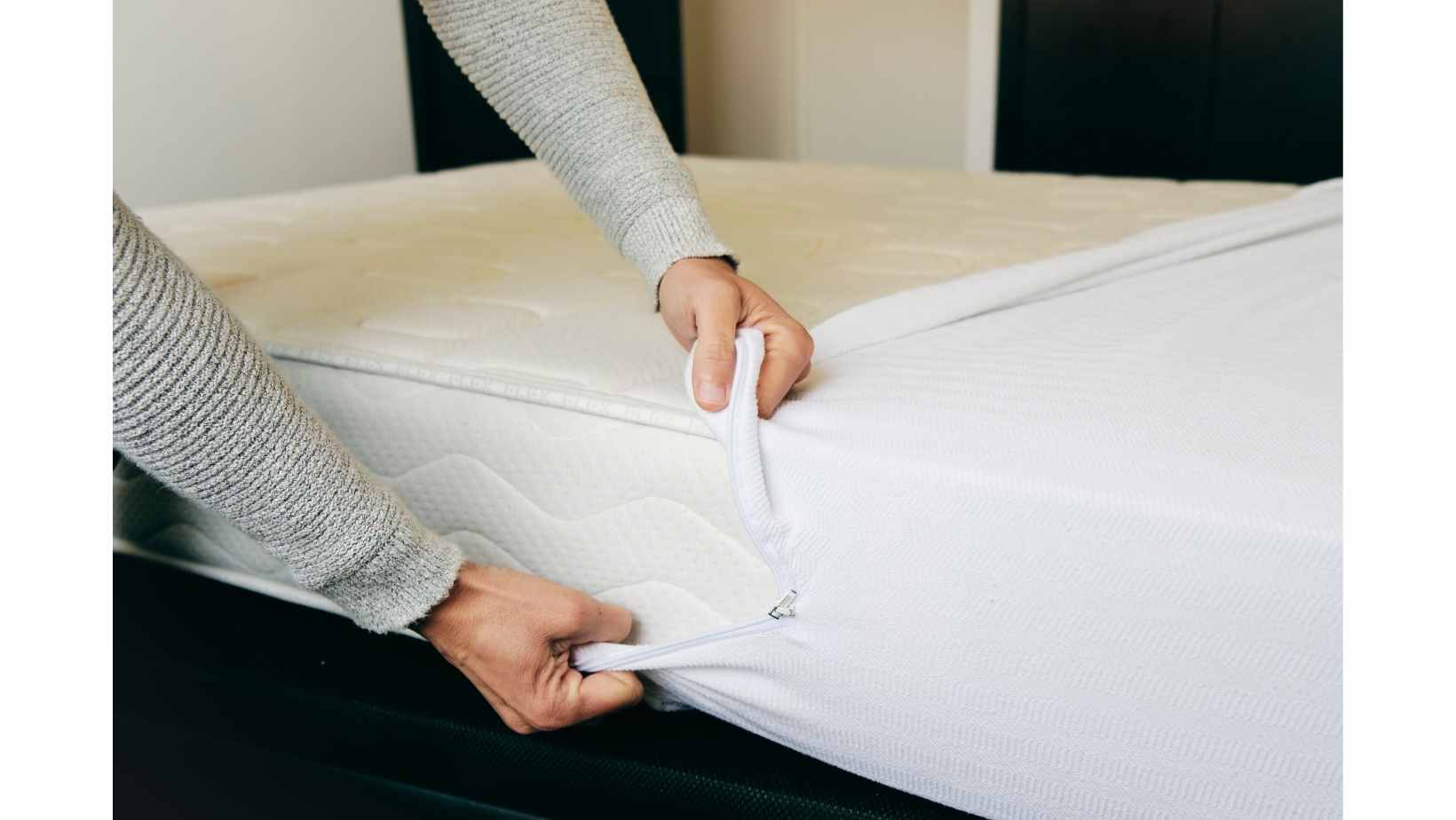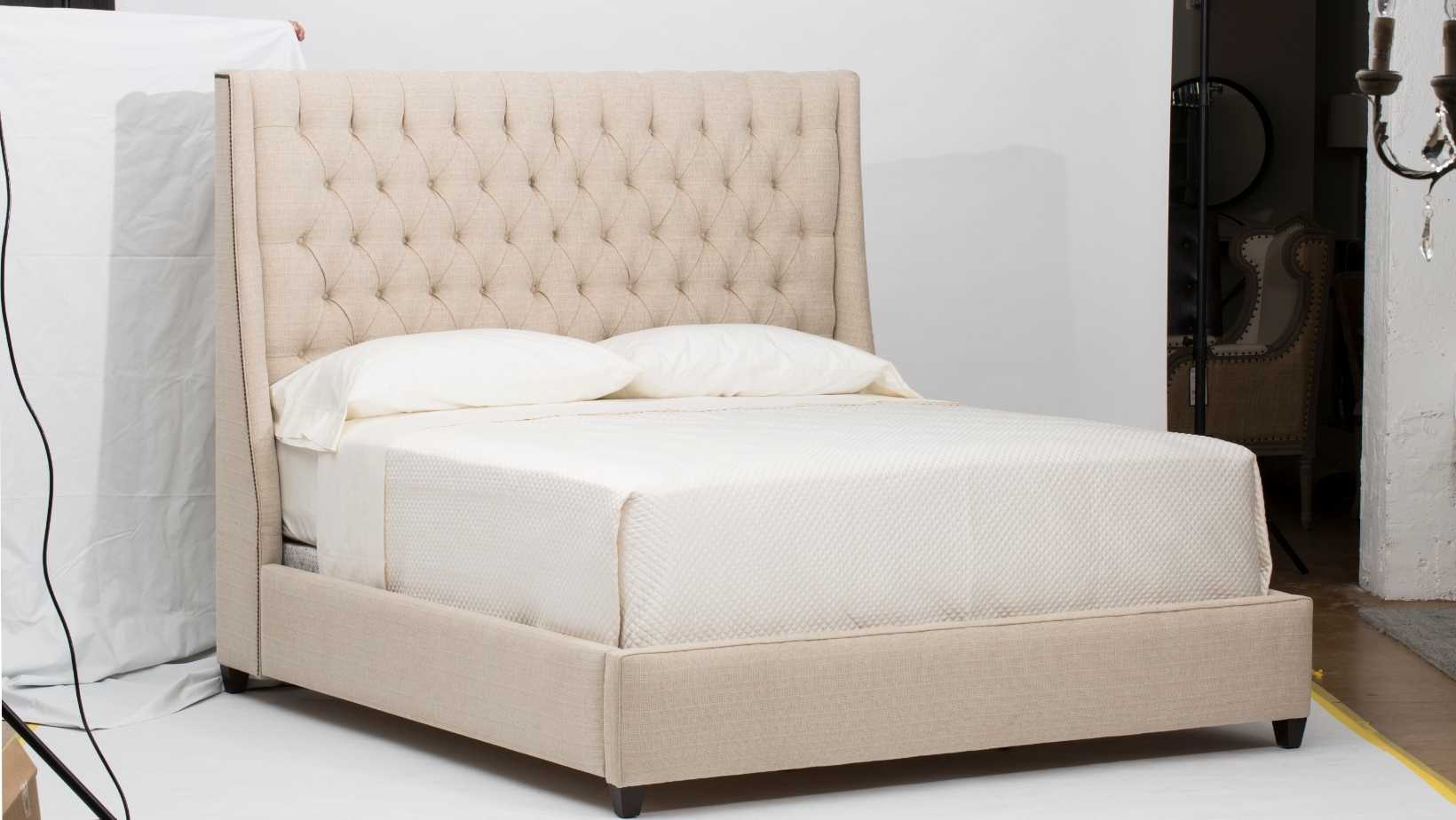A mattress protector is either a removable or non-removable casing that the manufacturer provides, or you can buy one yourself. But can you wash a mattress protector? The mattress protector covers the mattress to protect it from spills, urine and dust therefore you must be able to wash it.
A removable mattress protector can either be thrown into the washing machine or dry cleaned, depending on its material. A high-quality removable cover will retain its ability to repel liquid spills even after many washes, and this means that yours will not lose any effectiveness over time either.
So yes, you can wash a mattress protector, but you need to know how and when to do it. This article outlines everything you need to know about cleaning a mattress protector.
READ NOW: Best Mattress Protectors - Buyers Guide

Types of Mattress Protectors and How to Wash Them
Removable Mattress Protector
You should check the labels and instructions of your mattress cover to see if it's safe to remove and wash it. If this is the case, you should take it off the bed and wash it in your washing machine with your other clothes using a mild detergent. You should put it in a separate load from any other fabric because for some removable covers; you could end up with lumps if they're washed together with other fabrics.
You can also dry clean a removable cover, but this is only suitable if the label states that this is possible. Check to see if it's machine washable before deciding on dry cleaning because you could end up wasting money and time if you don't read the instructions.
Non-Removable Mattress Protector
This type of mattress protector does not come off your bed, so it has to be cleaned differently to a removable cover. You can either spot clean or dry clean your non-removable mattress protector as long as the label states that this is possible. If you go for dry cleaning, find a professional cleaner who can do it for you because home dry cleaning kits aren't suitable and could ruin your mattress protector.
Waterproof Mattress Protectors
If you have bought a waterproof mattress protector, then it is very important that you read the instructions because some are machine washable while others aren't. If your mattress cover isn't machine washable, you might need to choose between spot cleaning or dry cleaning because home washing kits are not suitable for waterproof covers.
Top Selling Mattress Protectors
Are All Mattress Protectors Waterproof?
No, not all mattress protectors are waterproof because some only repel liquid spills. Waterproof covers do what they say on the tin, and they're suitable for use by people who suffer from bedwetting. The waterproof protectors are generally thicker than the ones that simply repel liquid.
Protecting Your Mattress From Urine
If you want to protect your mattress from urine, you should go for a waterproof mattress protector because it will absorb wee and prevent stains. A waterproof protector can also prevent staining in general by preventing liquids from passing through the mattress, which is excellent for families with young children.
Protecting Your Mattress From Spills
However, if you simply want to repel spills, you should choose a mattress protector that has this feature because you will not need to go waterproof. It's essential to read the label and check what your mattress cover protects against before deciding which type of fabric you want on your bed.

Can You Tumble Dry a Waterproof Mattress Protector?
You can tumble dry a waterproof mattress protector, but only if you do it with great caution. Too much heat from the machine could damage it, so ensure you use very low heat settings. It would be better to remove your cover from the machine as soon as it is done washing because the covers are at risk of catching on other fabrics or metal parts inside the drum.
Another reason why you should make sure that you dry your waterproof mattress protector with care is that some manufacturers recommend not drying it in excess heat. If they are different from your washing instructions and you do not want to risk damaging them, it is better to remove the cover from the machine as soon as possible.
However, it's always better to either line dry your waterproof cover or put it on a clothesline for drying to protect its waterproofing. However, you should check with your manufacturer to see if they recommend any other drying method because some may say that you shouldn't line dry.
Does a Mattress Protector Prevent Dust Mites?
A mattress protector can prevent dust mite allergy because it protects the mattress from spills, stains, and accidents and contaminants. Dust mites are more likely to be found in mattresses that are not protected with bedding because the skin cells you shed every night would provide them with food. If you have allergies, you should get a waterproof mattress protector because it will prevent dust mites from feeding on your skin cells.
According to a study, using a mattress protector proves to reduce exposure to allergens from dust mites significantly. This proves that a waterproof cover will definitely keep these unwanted guests from setting up home on your mattress.
How Often Can I Wash My Mattress Protector?
If you have bought a removable cover, then you should be able to wash it every month. You need to make sure that you remove the cover from your bed after washing it. If you do not take out the protector, the wetness will stay underneath, and this may cause mildew to form. This means that bacteria, including urine or other contaminants, will accumulate in your mattress cover over time.
If you do not have removable covers, it's best to wash your mattress protector at least once a week. You should check whether the manufacturer recommends anything different than that because some may say that you should only wash after every couple of months.
You should also check the label on your waterproof mattress protector to see if it can be washed in a machine or needs to be dry-cleaned. If you have a removable cover, then you need to put it into a washing machine and use cold water with a mild detergent at most times. However, some manufacturers recommend that you use a washing machine only when the cover needs to be washed because it can affect the waterproofing.
The frequency of washing your mattress also depends on several factors. You might take longer or sooner to wash it.
Here are some of the reasons you may need to wash your protector:
1. Allergies
If you have allergies, then it is best to wash your cover more often. Allergic reactions are caused when the body comes in contact with contaminants, which means that you should be more vigilant in keeping these substances away from your body.
2. Illness
If you've just healed from an illness such as the cold or flu, then you should definitely wash your mattress cover. These contaminants spread through the air and can be very difficult to avoid when you are sick. You will need to make sure that anyone who is ill washes their protector more often because they might reinfect each other.
3. Spills
If you're the kind of person who carries snacks to the bedroom, then you should wash your mattress protector more often. There are higher chances that your protector will be exposed to these contaminants because you might drop food or have drinks while you're chilling on your bed.
4. Pets or Children
Pets and children are likely to spill a drink or eat snacks in the bedroom, which means these substances will go onto your bedding. Children may also wet the bed while pets would be more likely to urinate on it. You should take any of these as a sign that you should wash your mattress protector.
Make a Schedule to Wash Your Mattress Protector
Last but not least, it can be difficult to remember whether you've washed your mattress cover or not because it's often hidden from sight. You will need to make a schedule and go over it with everyone who lives in the house so they can follow through on washing their bedding.

Final Note
On a final note, some people believe that washing their mattress cover makes it wear out faster. You should look for a waterproofing solution that can be used on your protector to make it last as long as possible. You can also contact your supplier and ask if they have anything you could use as an extra layer of protection for your mattress.
Remember, cleaning your mattress cover also keeps it clean and healthy. This means you'll protect yourself and the entire family from germs and other contaminants that might come in contact with the bedding over time. Check to see what type of mattress protector you have so you know if you can you wash you mattress protector.



